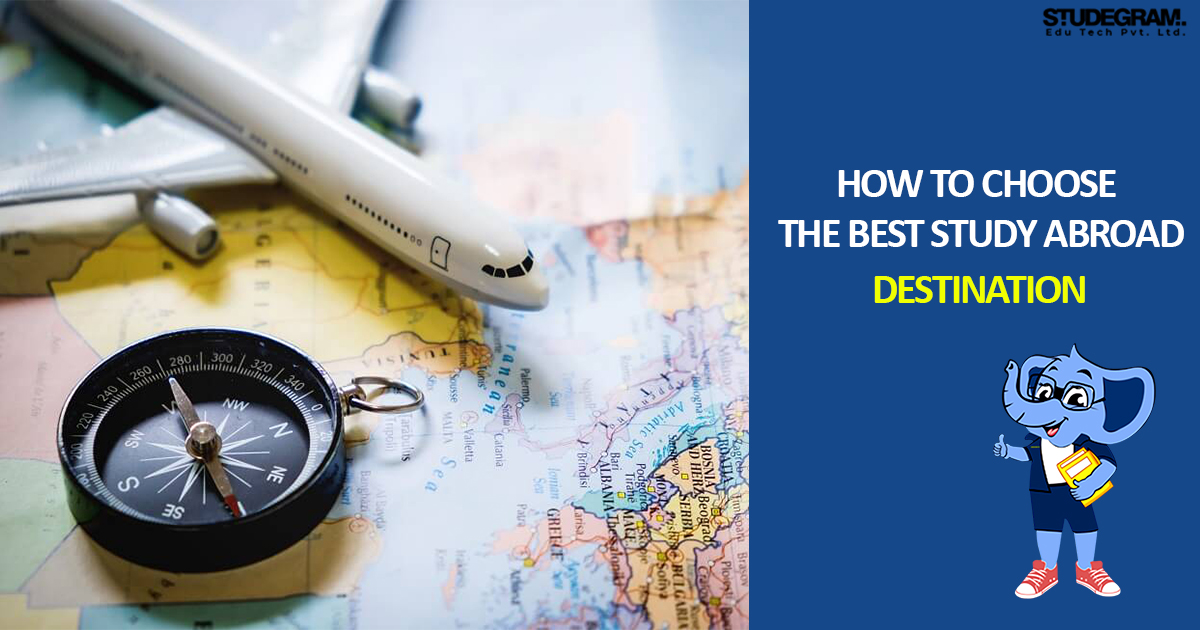How to Choose the Right Study Abroad Destination
Choosing the correct study abroad destination is a critical decision that can have a significant impact on your academic and personal development. Here are some tips to help you choose the best study abroad destination:

Identify Your Goals: Consider what you want to achieve by studying abroad. Do you want to immerse yourself in a different culture, acquire a new language, research a certain academic topic, or obtain professional experience? Identifying your goals will help you narrow down your possibilities.
Research Academic Programs: Look into universities and academic programmes that match your academic interests and job goals. Consider the program’s reputation, faculty expertise, available courses, and research or internship possibilities.
Consider Language: If you want to improve your language skills or learn a new language, consider studying in a nation where it is spoken. Immersing yourself in a language-rich environment can significantly improve your language abilities.
Explore Cultural Opportunities: Consider the cultural experiences you want to gain while studying abroad. Do you wish to visit historical sites, attend local festivals, or connect with the community? Consider destinations that provide rich cultural experiences that match your interests.
Assess Cost of Living: Consider the cost of living in potential study abroad destinations, which includes tuition, housing, food, transportation, and other expenses. To help with expenses, look into scholarship opportunities, cost of living comparisons, and accessible financial aid choices.
Safety and Security: When deciding where to study abroad, prioritise your safety and well-being. Investigate the safety and security situation in probable destinations, including crime statistics, political stability, healthcare services, and any travel warnings issued by your home country.
Climate and Environment: Consider the climate and atmosphere of your potential study abroad destinations. Do you favour warm or cold weather? Are you interested in outdoor activities like hiking, skiing, or going to the beach? Choose a destination with a temperature and atmosphere that suit your lifestyle.
Personal Preferences: When deciding where to study abroad, consider your own preferences and level of comfort. Consider your proximity to family and friends, familiarity with the local culture, and overall comfort in a foreign setting.
Consult with Advisors: Consult with academic advisors, study abroad advisors, and other students who have studied abroad. They can offer significant insights, ideas, and guidance based on their experiences and knowledge.
Visit Study Abroad Fairs: Attend study abroad fairs and information sessions to learn about various study abroad countries, programmes, and options. Contact representatives from institutions and organisations to obtain information and ask questions.
Reflect on Personal Growth: Consider how studying abroad fits into your personal growth and development goals. Consider how the experience will extend your viewpoint, improve your talents, and contribute to your personal and professional development.
Trust Your Instincts: Finally, follow your instincts and select a study abroad destination that feels appropriate for you. Listen to your intuition, weigh all options carefully, and make a decision that is consistent with your goals, interests, and aspirations.
Choosing the ideal study abroad place involves extensive research, thoughtful analysis, and meditation. By following these steps and taking into account a variety of considerations, you may choose a study abroad place that will provide you with a rewarding and transformational experience.

